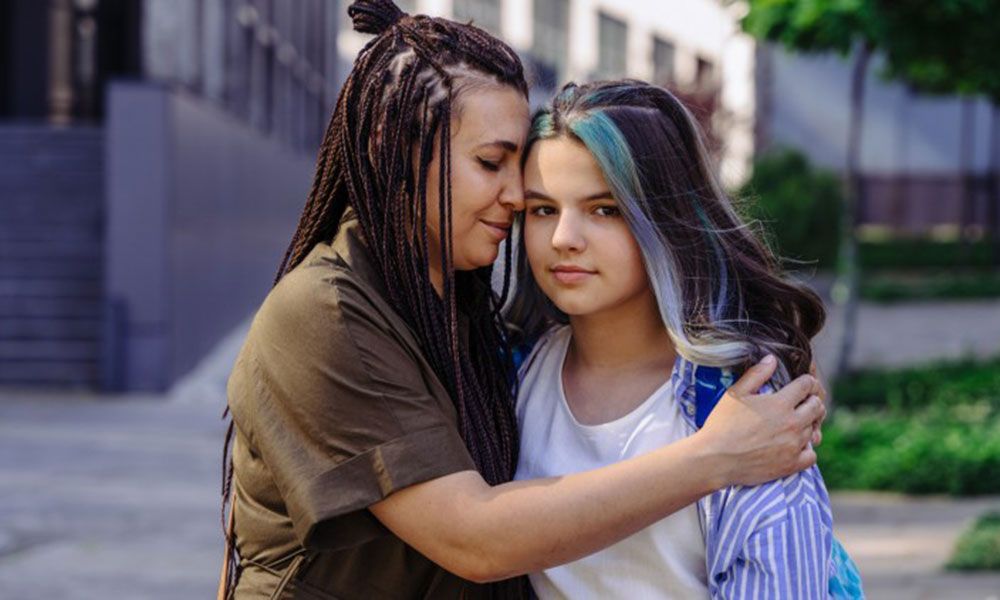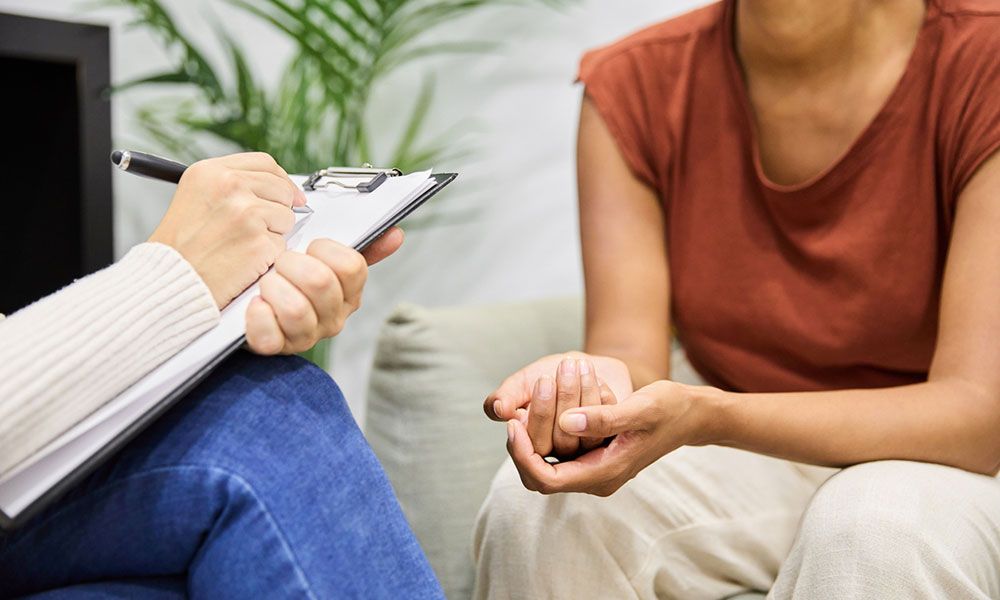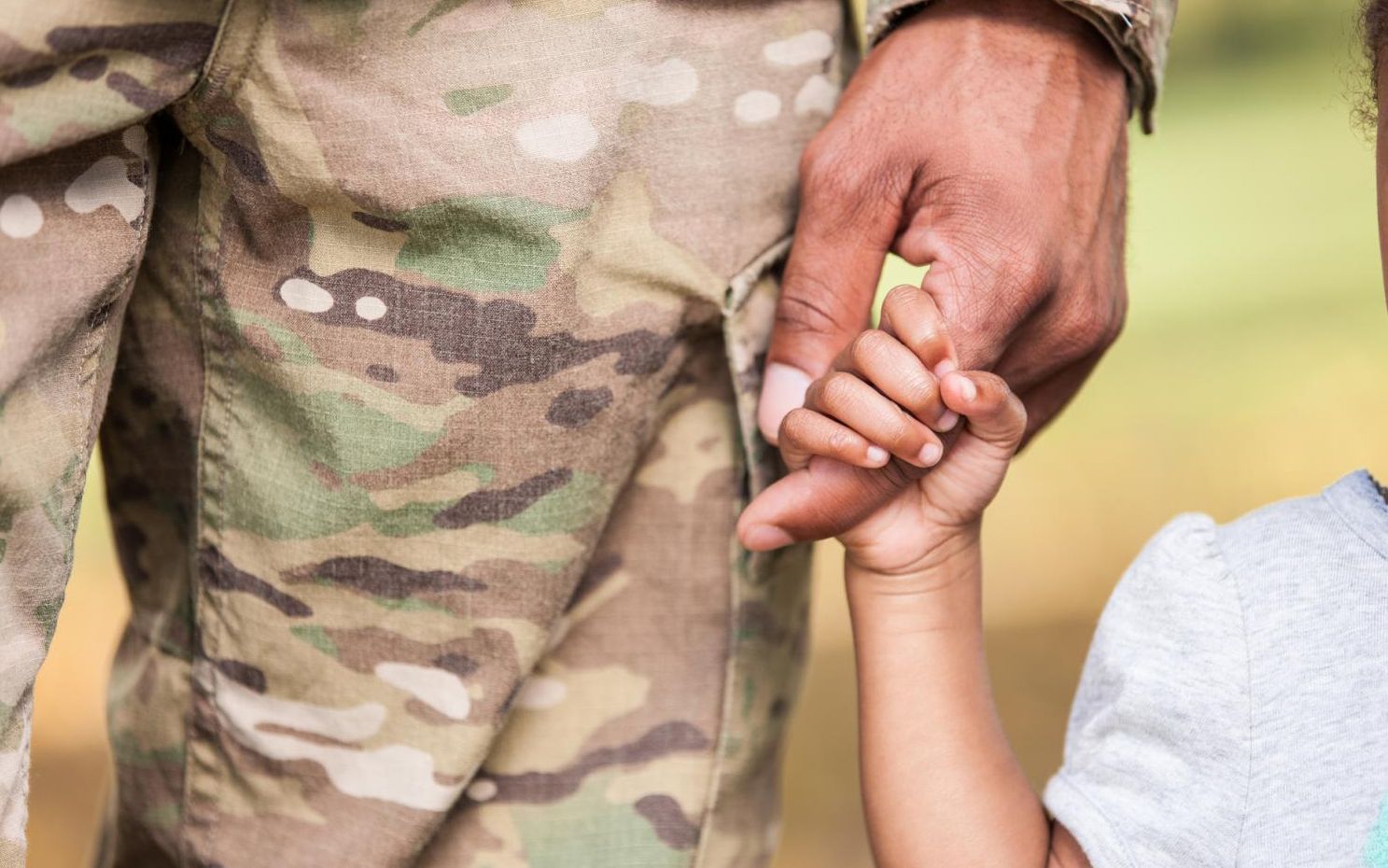Caring and Compassion Fellow Blake Colaianne sets his sights on helping students and schools
August 17, 2020
While standing in front of a classroom, Blake Colaianne realized that every day he was suppressing some of his humanity–his joys, stress, worries–in order to do his job. He also realized that his students were doing the same thing. This realization set Colaianne on a path that led him to the Prevention Research Center (PRC).
As a graduate student in Human Development and Family Studies and the PRC’s Caring and Compassion Fellow, his research focuses on prevention and promotion efforts that teach mindfulness and compassion skills to high school students, as well as how to create how a culture of belonging in high schools.
His commitment to creating caring and equitable school environments has also given him the chance to teach mindfulness and compassion workshops to students, teachers, and community members nationwide.
We recently connected with Blake to learn about his research and unique perspective on bringing healing into high school and college classrooms, as well as the workplace.
How has your experience with teaching high school impacted your research?
In the early parts of my career as a high school teacher, I experienced a lot of personal stress. When I showed up to school each morning, I would mentally push all of it aside, put on my teacher smile, and teach. In some ways, I turned off being human in order to do my job. And it hit me one day that my students were doing the same thing. They too were struggling with a lot of stress and difficult emotions, but because they wanted to get good grades and look good in front of their friends and teachers, they would turn off some of their humanity in order to just be students.
So, here I am in the front of the classroom teaching science, and there they are at their desks taking notes, and we’re all just going through the motions of school and not owning everything else on our minds. I suddenly felt called to figure out how to discuss issues of stress and disconnection with adolescents – how to bring social and emotional learning and mindfulness into the high school setting.
How has COVID-19 impacted your work?
Several Penn State departments and groups have reached out over the last few months about doing a mindfulness workshop. It’s great that people are starting to recognize that professional development can also serve as personal development. It’s been a lot of fun helping people use this time to question old habits and envision new ones.
I think we’ve moved into a pandemic phase where we are all trying to practice extreme patience. We’re doing a lot of waiting to figure out when, how, and where life is going to go. In the online “pandemic version” of my workshop, the first thing we do is just name what we’ve all been feeling in the last two months. I use the phrases, “feel it to heal it” or “name it to tame it.” A lot of us have experienced grief, sadness, gratitude, and I think it’s helpful to establish some shared humanity around that.
How do some of your workshops serve as a “permission slip to be human?”
We all want to belong, be seen, and feel like we’re good at something. Let’s just own that. Let’s start talking about it. What I try to do in my workshops is hand you a mental permission slip to be human. It’s a permission slip to express emotion, feel tired, cry, find joy even when you feel like you’re not supposed to. It’s this sense of permission, sense of allowance, that helps people develop a mindful perspective and connect more deeply with each other.

permission-slip
How has the Prevention Research Center supported your career path?
Every time I think of Penn State, I think of opportunity. There is no doubt that I came here because of the PRC. I’ve been so thankful that the PRC encourages rigorous research while also figuring out how the work can truly help people. We’re stellar at the translational part.
For my dissertation, I’m developing and evaluating a compassion-based program for high school students. I’ve narrowed my research focus to high school because this age level is often skipped over in the social and emotional learning literature. Working with people at the PRC has helped me understand how to better reach high school students in a more genuine way, while also evaluating the program within a strong research design. After grad school, I’m excited to teach students at the college level, especially those majoring in education. My future direction is something that will allow me to merge teaching with my research in order to help students and schools.
As a Caring and Compassion Fellow for the PRC, I’ve been challenged to really think through the difficulties of school-based research, but I love it. What motivates me is reminding myself of all of my former students, all the young people, who are showing up to school each day wanting to be a little more human.
Caring and Compassion Fellow Blake Colaianne sets his sights on helping students and schools
August 17, 2020
While standing in front of a classroom, Blake Colaianne realized that every day he was suppressing some of his humanity–his joys, stress, worries–in order to do his job. He also realized that his students were doing the same thing. This realization set Colaianne on a path that led him to the Prevention Research Center (PRC).
As a graduate student in Human Development and Family Studies and the PRC’s Caring and Compassion Fellow, his research focuses on prevention and promotion efforts that teach mindfulness and compassion skills to high school students, as well as how to create how a culture of belonging in high schools.
His commitment to creating caring and equitable school environments has also given him the chance to teach mindfulness and compassion workshops to students, teachers, and community members nationwide.
We recently connected with Blake to learn about his research and unique perspective on bringing healing into high school and college classrooms, as well as the workplace.
How has your experience with teaching high school impacted your research?
In the early parts of my career as a high school teacher, I experienced a lot of personal stress. When I showed up to school each morning, I would mentally push all of it aside, put on my teacher smile, and teach. In some ways, I turned off being human in order to do my job. And it hit me one day that my students were doing the same thing. They too were struggling with a lot of stress and difficult emotions, but because they wanted to get good grades and look good in front of their friends and teachers, they would turn off some of their humanity in order to just be students.
So, here I am in the front of the classroom teaching science, and there they are at their desks taking notes, and we’re all just going through the motions of school and not owning everything else on our minds. I suddenly felt called to figure out how to discuss issues of stress and disconnection with adolescents – how to bring social and emotional learning and mindfulness into the high school setting.
How has COVID-19 impacted your work?
Several Penn State departments and groups have reached out over the last few months about doing a mindfulness workshop. It’s great that people are starting to recognize that professional development can also serve as personal development. It’s been a lot of fun helping people use this time to question old habits and envision new ones.
I think we’ve moved into a pandemic phase where we are all trying to practice extreme patience. We’re doing a lot of waiting to figure out when, how, and where life is going to go. In the online “pandemic version” of my workshop, the first thing we do is just name what we’ve all been feeling in the last two months. I use the phrases, “feel it to heal it” or “name it to tame it.” A lot of us have experienced grief, sadness, gratitude, and I think it’s helpful to establish some shared humanity around that.
How do some of your workshops serve as a “permission slip to be human?”
We all want to belong, be seen, and feel like we’re good at something. Let’s just own that. Let’s start talking about it. What I try to do in my workshops is hand you a mental permission slip to be human. It’s a permission slip to express emotion, feel tired, cry, find joy even when you feel like you’re not supposed to. It’s this sense of permission, sense of allowance, that helps people develop a mindful perspective and connect more deeply with each other.

permission-slip
How has the Prevention Research Center supported your career path?
Every time I think of Penn State, I think of opportunity. There is no doubt that I came here because of the PRC. I’ve been so thankful that the PRC encourages rigorous research while also figuring out how the work can truly help people. We’re stellar at the translational part.
For my dissertation, I’m developing and evaluating a compassion-based program for high school students. I’ve narrowed my research focus to high school because this age level is often skipped over in the social and emotional learning literature. Working with people at the PRC has helped me understand how to better reach high school students in a more genuine way, while also evaluating the program within a strong research design. After grad school, I’m excited to teach students at the college level, especially those majoring in education. My future direction is something that will allow me to merge teaching with my research in order to help students and schools.
As a Caring and Compassion Fellow for the PRC, I’ve been challenged to really think through the difficulties of school-based research, but I love it. What motivates me is reminding myself of all of my former students, all the young people, who are showing up to school each day wanting to be a little more human.
Related People
Related People









